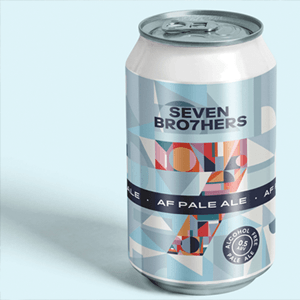Taking your pub free of tie, how to trigger MRO
If you run a pub under a tied agreement with your brewer or pub company, you have the option at certain points during your lease to request a free of tie rent proposal under the Market Rent Only (MRO) option.
This can be a great option if you want to offer a wider range of beers than you can offer under your tied agreement. It can also offer you a better deal financially if you are able to negotiate a good free of tie rent.
Even if you end up staying on a tied agreement, negotiating this in parallel with a free of tie option can be a good way to achieve a good deal on your tied rent.
The process of requesting an MRO rent proposal has improved dramatically over the years since it was introduced. It is now possible to go through the process yourself without incurring any legal fees until the point you decide to accept a free of tie offer.
In this article we look at how & when to request a free of tie rent offer, what to expect from the process, and some of the pros and cons of going free of tie.
We are not qualified to give legal or financial advice and this article is intended for informational purposes only based on our own experiences.
How & when to request a free of tie rent offer
There are 4 events that trigger the option for you to request a free of tie rent proposal under the MRO option. These are:
- You receive a rent assessment proposal (RAP) – this is a document you receive at the start of a rent review process. Many pubs will go through this process every 5 years
- A renewal of your pub arrangement / tenancy
- Significant price increases – when you receive an invoice indicating a significant price increase of the products you buy from your pub company. (There is a specific calculation that determines a significant price increase, which needs to be a level above inflation)
- You notify your pub company of an event that has occurred that will have a significant impact on trade
You can see more detail on the above trigger points
here

The most likely tigger point for most business will be a rent review. This is also usually a good opportunity to exercise your MRO option as even if you don’t ultimately go free of tie, it will likely help you in negotiating a fair tied rent.
There is a strict time limit of 21 days after any of the above events for you to notify your pub company that you want it to offer you the MRO option. There is also certain information you need to include - a template is available here
Once you have sent your MRO notice, your pub company should acknowledge it as soon as possible, and will then have 28 days to provide a full response.
What to expect from the MRO process?
If your MRO notice met the required criteria (e.g. a relevant trigger event had taken place within 21 days) your pub company’s full response will include a proposed free of tie rent. This begins a 3-month resolution period, in which you can negotiate with your pub company.
If your MRO notice was triggered by a rent review you can continue to negotiate your tied rent in parallel to your free of tie rent. This is highly recommended as it ensures you understand both options available to you and go with the one that makes the most sense for your business.
Rent proposals are based on assumptions of a level of trade (referred to as Fair Maintainable Trade or FMT) and all costs, excluding rent. This provides a profit before rent figure, which is then split 50:50 between you and the pub company.
If a tied and a free of tie rent proposal are based on the same trade assumptions, the free of tie proposal will be more beneficial to you financially than a tied rent proposal. Essentially, the additional margin your pub company makes on the tied arrangement, falls into the profit before rent figure, which is then split between you and the pub company.
This means your initial free of tie proposal under MRO is likely to be a better option financially than your initial tied rent proposal that enabled you to trigger the MRO process (assuming both have followed the same or similar trade and cost assumptions).
However, your pub company is likely to negotiate on the tied rent proposal, making it more attractive and making it less of a clear-cut decision. Given you always have the option of accepting the tied proposal, this is one reason that triggering the MRO process can be a good idea, even if you don’t have any great desire to go free of tie.
You are then left to negotiate with the pub company on both your free of tie and tied rent proposal until you feel you are happy to accept one or the other. If you don’t reach a point where you are happy with either proposal you can request a free of tie rent proposal from an Independent Assessor.
Weighing up a tied vs a free of tie rent offer
Weighing up a tied vs a free of tie rent offer takes some time and careful analysis. You need to come up with an estimate of the savings you will make through being able to buy your tied products on the open market, so you can establish if you will save more or less than any increase in rent.
Whilst you may well change your product range if you go free of tie, comparing whether you would be better or worse off with your current product range provides a good way of assessing whether a free of tie offer is worth considering.
One approach to this is:
- Obtain the volume of tied products you currently sell over a year
- Obtain open market free of tie prices for your current product range
- Multiply the savings you will make on each product by the amount of the product you sell in a year
- Total up the savings to get an approximation of the savings you will make by going free of tie

Pros & cons of going free of tie
If you are negotiating a tied rent and free of tied rent in parallel, the financial differences between the two based on the trade assumptions used is likely to be small. The free of tie option is likely to come with a higher rent, but with a corresponding saving from the improved margins. How much this equates to depends on the level of trade you achieve.
If you feel you can improve your trading figures over the remainder of your agreement then the free of tie deal could start to look more attractive.
Another benefit of going free of tie is the option to improve your product range, as you can source any product you would like to sell.
A potential disadvantage of going free of tie, could be a risk of being financially worse off if you haven’t negotiated well, or haven’t calculated the savings carefully against the additional rent you will be paying.
Similarly, if your trade drops after agreeing a free of tie rent, your higher fixed rent could outweigh the savings you are making from being free of tie.
There are also one-off costs of going free of tie, which are likely to include legal costs to move to a new lease, and potentially stamp duty costs. You need to make sure these are factored in when calculating any savings.
Finally, you are likely to receive less support from your pub company under a free of tie agreement. Many of the pub companies offering rent free periods to their tenants during COVID lock downs did not do so for those under free of tie agreements.
In summary, for most businesses triggering the MRO process when you receive a rent assessment proposal is likely to be a good idea. This doesn’t have to cost you anything and will ensure you are aware of all of the options available to you.
Whether you end up choosing to go free of tie is likely to be a more a difficult decision and one that depends on your individual business, but going through the process is likely to encourage your pub company to negotiate on your tied rent and so leave you better off in either scenario.






